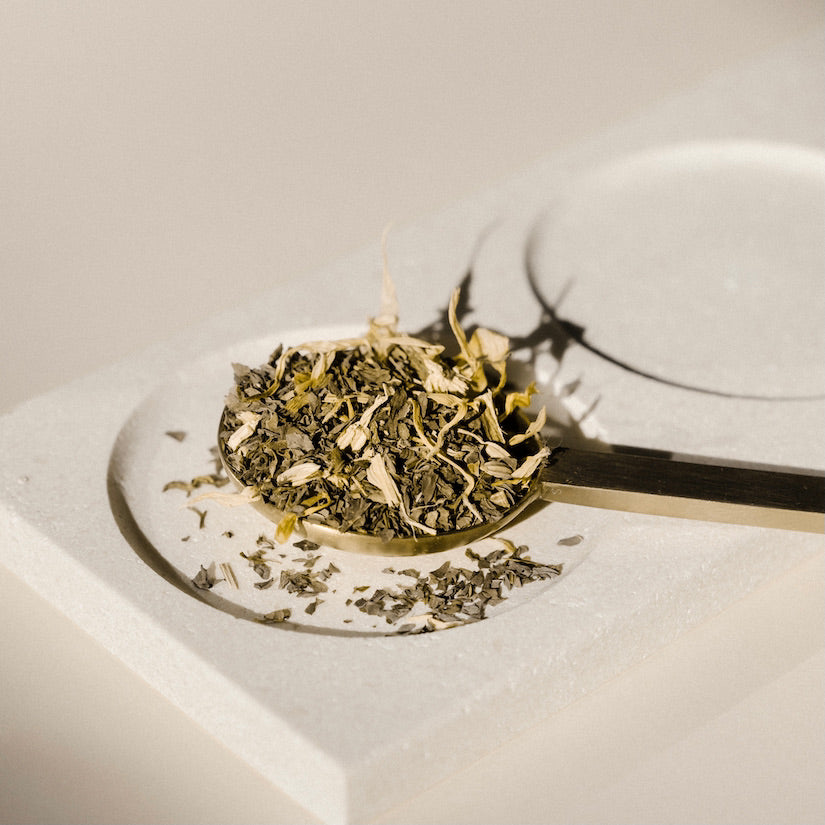A Holistic Guide To Coping With Stress
When we are under stress, our health and wellbeing is often the first thing that gets sacrificed. Stress triggers our fight or flight response, resulting in a hormonal cascade of hormones adrenaline and cortisol. From an evolutionary perspective, this response developed as a protective mechanism that prepared us to fight or flee from life-threatening situations. Our physiology has not changed in all these years, and our body doesn’t know how to differentiate between something life-threatening or the constant overstimulation of daily life.
High levels of stress hormones can overwhelm our nervous system and take a toll on our long-term health. This can manifest as inflammation, insomnia, digestive issues, skin disorders, fatigue, weight issues, fertility issues and premature ageing. We need to learn to bring ourselves back into balance. You can do this by regularly activating the parasympathetic nervous system (rest & digest), which sends a message to our brain that we are safe, builds resilience and helps us get through challenging times.
Try and integrate the following simple stress-coping strategies to bring yourself back into balance each day:
Eat breakfast
Skipping breakfast is a missed opportunity to nourish ourselves, reduces our brain’s capacity to function properly, and affects our adaptability to stressful situations. The brain perceives skipping breakfast as a threat and activates our flight or fight response – especially for women in their menstruating years, leading to elevated levels of stress hormones. Start your day with a nourishing bowl of creamy oats. Oats are known to support the nervous system, boost serotonin levels, and significantly reduce stress and anxiety due to their nervine properties. Protein is also essential for stabilising blood sugar levels and keeping your mood and stress levels balanced. Good quality protein breakfast options include eggs, greek yoghurt, and tofu.
Get organised
Often stress is caused by feeling overwhelmed and under pressure. We live in a busy and fast-paced world where we juggle many things at once, and high demands are placed on our time. Studies show a strong positive correlation between organisation and stress reduction. Getting organised will leave you feeling empowered, in control and calm. Pick a day each week to plan, get things out of your head and onto paper or a schedule, block out time for important tasks you need to get done, plan your meals and meal prep.
Drink tea over coffee
Caffeine is a stimulant and elevates our stress hormones. If you’re feeling stressed, cut back on the caffeine and try swapping out your morning coffee for herbal tea instead. Herbs contain many excellent and beneficial properties. Our Energise blend is high in antioxidants and minerals that improve energy and vitality without caffeine. Adapt is formulated with herbs that calm the nervous system and ease stress while supporting mental clarity.
Spend time in nature
Nature is the ultimate restorer. Get outside each day, whether it’s sipping your morning tea in the garden, an ocean swim, a gentle walk in the sunshine or a long hike on the weekend. The natural elements will soothe the nervous system and reduce stress levels while increasing energy levels and mood-boosting neurotransmitters.
Practice meditation
Meditation has been scientifically proven to reduce stress hormones in the body. Having a regular meditation practice can help you gain new perspectives on stressful situations and build resilience to coping with daily challenges. There are many different types of meditation techniques out there. Experiment with apps or find a meditation course that aligns with you. The best technique is one you will regularly practice. Meditating first thing in the morning each day can greatly positively affect your mindset for the rest of the day.
Gentle exercise
Regular exercise supports the body’s adaptability to stressful situations by improving cardiovascular and nervous system function and boosts feel-good hormones. However, high-intensity exercise can have the opposite effect and push the body into fight or flight instead. Focus on restorative practices such as walking, Pilates, yoga, qi gong or tai chi to support the nervous system and reduce stress levels.
Food as medicine
Avoid processed and packaged, sugary food and drinks as these foods increase inflammation, spike your blood sugar levels, and wreak havoc on your stress response. Prioritise fresh fruits and vegetables high in antioxidants, vitamins, and minerals. Essential fatty acids from sustainably sourced fish are a potent anti-inflammatory food that modulates our stress response. Consume plenty of fermented foods and probiotics to feed the beneficial bacteria in our microbiome. There is a direct link between the nervous system and gut via the gut-brain axis.
Prioritise sleep
Our nervous system does the most intensive and restorative healing when we sleep, which results in a calmer waking state. Lack of sleep can exacerbate our stress levels and lead to elevated cortisol in the body. Aim to be in bed by 10 pm and for 8-9 hours of sleep each night. Enjoy our relaxing Serenity blend before bed, formulated with mild herbal sedatives to help calm the nervous system, reduce feelings of stress and anxiety and promote a restful night of sleep.

Leave a comment
This site is protected by hCaptcha and the hCaptcha Privacy Policy and Terms of Service apply.